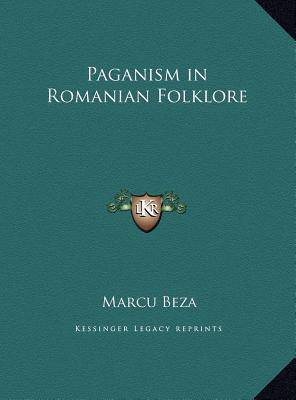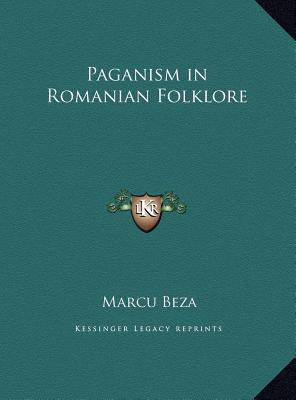
- Afhalen na 1 uur in een winkel met voorraad
- Gratis thuislevering in België vanaf € 30
- Ruim aanbod met 7 miljoen producten
- Afhalen na 1 uur in een winkel met voorraad
- Gratis thuislevering in België vanaf € 30
- Ruim aanbod met 7 miljoen producten
Zoeken
Omschrijving
Paganism in Romanian Folklore is a book written by Marcu Beza that explores the pagan beliefs and practices that are still present in Romanian folklore. The book takes a comprehensive look at the various pagan traditions that have been passed down through generations of Romanian people, including the worship of nature, the celebration of the seasons, and the veneration of ancestral spirits.Through extensive research and analysis, Beza delves into the origins of these pagan practices, tracing their roots back to ancient times and examining how they have evolved over the centuries. He also explores the ways in which these traditions have been integrated into Christian beliefs and practices, creating a unique blend of pagan and Christian elements that is still present in Romanian culture today.Throughout the book, Beza provides detailed descriptions of the various pagan rituals and ceremonies that are still practiced in Romania, including the celebration of the winter solstice, the veneration of saints and martyrs, and the use of herbal remedies and charms to ward off evil spirits.Overall, Paganism in Romanian Folklore offers a fascinating glimpse into the rich and complex history of Romanian culture, and provides valuable insights into the ways in which pagan traditions continue to shape the beliefs and practices of modern-day Romanians.1928. In his youth, the author prayed to the moon, accompanied the procession of the bride-goddess to the various fountains and often wore a disguise for the ritual dances. No doubt faded remnants of such pagan usages linger in other parts of the world. Beza tried to correlate some of these with the Romanian customs, though casually, not because he did not appreciate the comparative method; on the contrary, he added a chapter on Scottish and Romanian ballads, which is little else but a study in parallelisms, and which shows of what advantage such a method might be. Illustrated.This scarce antiquarian book is a facsimile reprint of the old original and may contain some imperfections such as library marks and notations. Because we believe this work is culturally important, we have made it available as part of our commitment for protecting, preserving, and promoting the world's literature in affordable, high quality, modern editions, that are true to their original work.
Specificaties
Betrokkenen
- Auteur(s):
- Uitgeverij:
Inhoud
- Aantal bladzijden:
- 202
- Taal:
- Engels
Eigenschappen
- Productcode (EAN):
- 9781169733091
- Verschijningsdatum:
- 10/09/2010
- Uitvoering:
- Hardcover
- Formaat:
- Genaaid
- Afmetingen:
- 216 mm x 279 mm
- Gewicht:
- 757 g

Alleen bij Standaard Boekhandel
+ 113 punten op je klantenkaart van Standaard Boekhandel
Beoordelingen
We publiceren alleen reviews die voldoen aan de voorwaarden voor reviews. Bekijk onze voorwaarden voor reviews.











